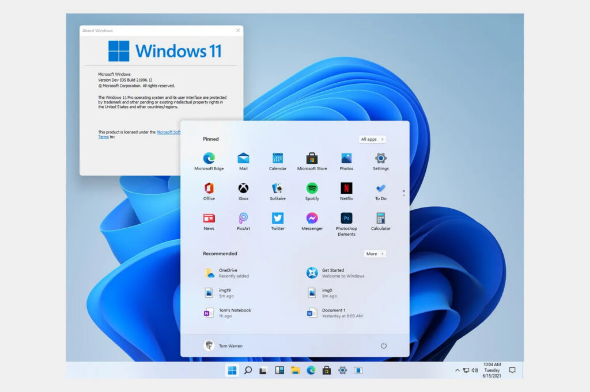Connection to DriversCloud Create a DriversCloud.com account Reset your DriversCloud.com password Account migration
Microsoft gives details on the "strict" hardware requirements of its Windows 11
Security issues that make a lot of people cringe and are not far from reopening the debate on programmed obsolescence.
Available since October 5th - less than four months after its official announcement, a kind of record for Microsoft - Windows 11 is still at the heart of a certain controversy. Remember, at the time of presenting its new operating system, Microsoft specified the hardware requirements of its software... and scared a lot of people in the process. During the summer, things went down a bit, but the remarks and indignations started again with the beginning of September. Now that Windows 11 is actually available, we have to face the facts: many perfectly functional - and even powerful - configurations are being pushed aside by the OS.
Windows 11 is a 64-bit-only operating system and it doesn't offer any support for 32-bit processors. So far, nothing extraordinary. On the other hand, the OS is particularly selective about processors and only accepts, for example, eighth-generation Core CPUs from Intel. Similarly, this time with AMD, you need at least a Ryzen processor with Zen+ cores. In fact, perfectly efficient chips like the Core i7-7700 or Ryzen 1800X are simply not "capable" of running Windows 11.
A few days after the official launch of Windows 11, Microsoft decided to speak up and explain why in a video published on the Microsoft Mechanics channel and visible above. Unsurprisingly, the editor states that it wanted to clearly strengthen the security of its new operating system and, to do this, it uses well-known tools that were previously left aside by Windows: we are talking about the Secure Platform Module (TPM) in version 2.0, Secure Bootor security via virtualization (VBS).
Microsoft claims that by avoiding these restrictive measures with Windows 10, it has also limited the protection offered to users. With Windows 11 and these various techniques, this will no longer be the case. Microsoft then takes an example quoted by Clubic: " If your machine is compromised, we can help you minimize the damage caused by the threat. Windows 11 will stop these types of attacks immediately, because we use Secure Boot and Trusted Boot, which together use the required UEFI and TPM hardware. Secure Boot and Trusted Boot stop rootkits or bootkits that try to modify the first boot files. For our part, we'd like to remind you that if your machine can't run Windows 11, you don't have to give up Windows 10, which should continue to be supported for several more years.





